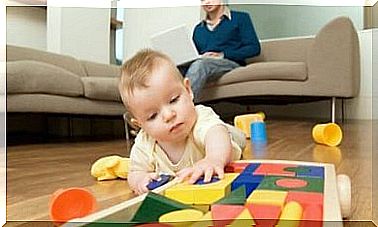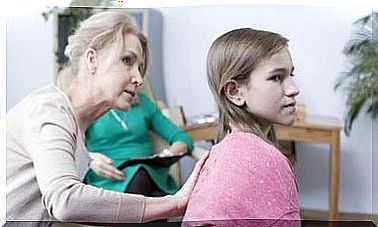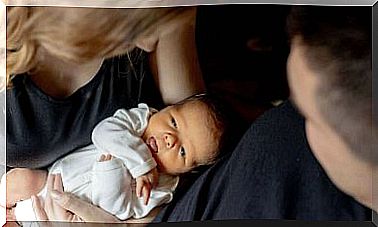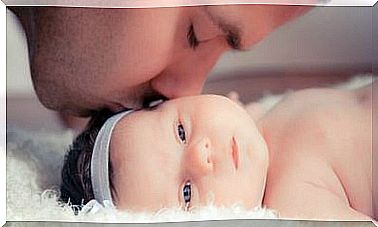Weaning From The Night – When Should You Start?
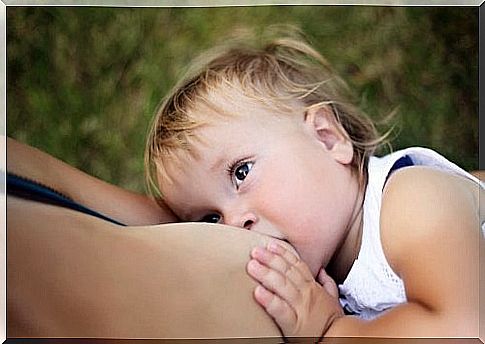
When is the baby ready to be weaned? At 4-6 months of age, a child gets enough calories during the day to be able to sleep through the night. In addition, some smaller babies often sleep for many hours without waking up to eat. Now we give good tips for weaning your baby from nursing at night – keep reading!
If the mother is not constantly available during the day, the baby may want a breast or bottle at night to make more contact with the mother. It is also very common for a baby to wake up at night because it has a cold, some developmental change, or an erupted tooth.
It is therefore important to approach weaning from breastfeeding little by little and to take into account the fact that the baby needs a mother to feel safe.
How do you know your baby is ready to be weaned?
From the time your baby is 4-6 months old, you can gradually start weaning from nighttime sleeping. At this point, even if she doesn’t need food in the morning, your baby may wake up simply because she is used to this. This routine is not easy to change as babies are used to waking up after midnight to eat.

If it is more comfortable for the mother to feed the baby at night, she has no obligation to change this routine. However, it is important that the mother takes care of her well-being and health.
Lack of sleep can cause several problems in the human body. If you’re tired, and if you feel like your baby is ready for a change in routine, you can get started. If you have any doubts instead, ask your pediatrician for advice on this process.
Tips for weaning at night
Weaning from a night’s sleep will not cause any harm to your baby. Instead, it helps to create a routine that promotes the baby to sleep through the night. If you’re sure it’s a good time to start weaning, here are some helpful tips:
- Approach the weaning process from nocturnal congestion gradually. Put your baby next to you for less and less time or put less milk in his bottle at night. Extend the periods between feedings, and caress her back so you can help her fall asleep again.
- Make sure he eats enough during the day. Take planned breaks during the day to breastfeed or give a bottle.
- It is not recommended to wean during the transition period. For example, if you start working during the day, it’s better to wait a while for your baby to adapt to this change before starting weaning.
- It is important for the father to comfort the baby when he cries at night. Your scent and the smell of breast milk will make your baby want to eat when you are a comforter.
- Reduce feeds one at a time. Convince your baby when he wakes up to eat and explain to him that it is time to sleep. Talk to him firmly, but also with love. Little by little, the baby will understand this and adapt to the new system.
- Give milk extra times towards the end of the day. When your baby falls asleep with a full stomach, he will be less likely to wake up at night.
What do experts say on the subject?
In his book “Solve Your Child’s Sleep Problems,” pediatrician Richard Ferber says that unnecessary night feeding can cause sleep problems for children.
He explains that if a baby wakes up several times a night to eat, or if he wakes up for other reasons (such as digestive problems or a wet diaper), he can use excuses for wanting to eat more.
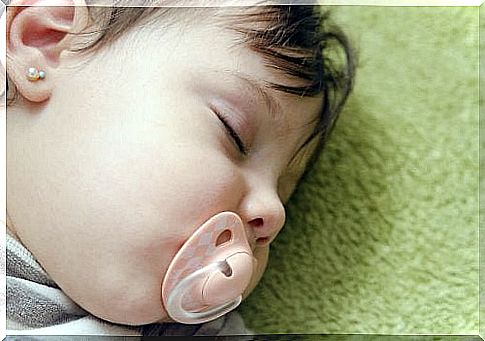
On the other hand, pediatrician William Sears talks about nocturnal meals being a great way to strengthen the bond between parents and children. For that reason, he recommends that parents do not speed up the process of weaning as long as this does not cause major problems for the family.
In his book “The Baby Sleep Book,” he offers strategies such as sleeping with a child or feeding him in his parents ’bed to make night meals more comfortable for both parties.
The decision to start the weaning process depends on the parents and how comfortable they are with that system. When you are ready to start, you should also be very sure that your baby is ready.
If you are not fully prepared, your pediatrician should be the one to determine if your baby is ready to start weaning.


